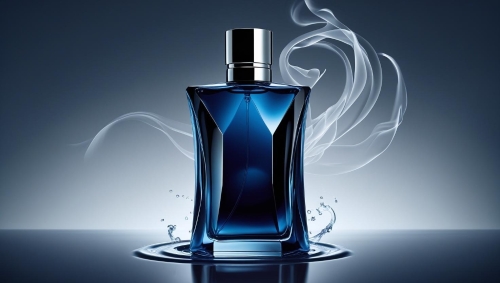
India, November 14 -- The elegant rose perfume your grandmother wore. That sophisticated jasmine scent you've been spritzing for years. The romantic gardenia fragrance that's become your signature. These timeless floral classics have adorned women for generations, but dermatologists are now raising red flags about ingredients lurking in even the most prestigious bottles. What's emerging from medical research isn't just about sensitive skin—it's a wake-up call that could change how we think about perfume for women entirely.
The Hidden Allergens in Your Beloved Bouquet
Dr. Rachel Morrison, a board-certified dermatologist in New York, sees it almost daily: women coming in with mysterious rashes, unexplained skin irritation, or persistent contact dermatitis. "When we start investigating triggers, classic floral perfumes are often the culprit," she explains. "Many women don't connect the dots because they've worn these scents for years without problems. But sensitization can develop over time."
The issue lies in how floral fragrances are formulated. Natural essential oils from flowers like rose, jasmine, and lily contain dozens of chemical compounds, some of which are known allergens. Geraniol, linalool, citronellol, and eugenol—common components in floral scents—top the European Union's list of the 26 most allergenic fragrance ingredients. When these compounds oxidize upon exposure to air and light, they become even more irritating to skin.
What makes this particularly concerning is that perfume for women, especially floral varieties, often contains concentrated amounts of these ingredients. A single spritz can deposit hundreds of potentially sensitizing molecules directly onto your skin. Over time, repeated exposure can trigger what dermatologists call "acquired sensitivity"—you develop an allergy to something you previously tolerated just fine.
The Photosensitivity Problem Nobody Mentions
Here's where the warning becomes even more serious: certain compounds in floral fragrances can make your skin dangerously sensitive to sunlight. Bergamot oil, commonly used to add brightness to floral blends, contains bergapten and other furanocoumarins that cause phototoxic reactions. Apply your favorite floral perfume to your neck or wrists, step into the sun, and you might develop what looks like a chemical burn.
"I've treated women with severe hyperpigmentation and blistering that they couldn't explain," says Dr. James Chen, a dermatologist specializing in contact dermatitis. "When we piece together that they applied floral fragrance before sun exposure, it all makes sense. The damage can take months or even years to fade."
This photosensitivity issue extends beyond bergamot. Many synthetic floral molecules used in modern perfumery haven't been extensively tested for phototoxic effects. The beautiful bottle of perfume for women sitting on your vanity might be creating invisible damage every time you wear it outdoors, contributing to premature aging, dark spots, and uneven skin tone.
The Phthalate Controversy
Beyond allergens and photosensitizers, dermatologists are concerned about phthalates—chemicals used to make fragrances last longer. These compounds have raised alarm bells not just for skin health but for overall wellness. While the fragrance industry maintains these chemicals are safe at the levels used, emerging research suggests otherwise.
Phthalates are endocrine disruptors, meaning they can interfere with hormone function. Several studies have linked phthalate exposure to reproductive health issues, and because these chemicals are easily absorbed through skin, your daily perfume application could be a significant source of exposure. The concern intensifies with floral fragrances, which typically contain higher concentrations of fixatives to maintain their delicate notes throughout the day.
The tricky part? Companies aren't required to list phthalates on ingredient labels. That innocent "fragrance" or "parfum" listed on your bottle could contain multiple phthalate compounds, and you'd never know.
When Your Skin Tries to Tell You Something
Dermatologists emphasize that skin reactions to floral perfumes manifest in various ways. Classic contact dermatitis appears as redness, itching, and rash at application sites—typically the neck, wrists, and behind ears. But reactions can be subtler and more insidious.
Some women experience what's called "fragrance-induced eczema," where existing eczema flares up or new patches appear seemingly randomly. Others develop respiratory symptoms—the fragrance molecules don't just sit on skin but evaporate into the air you breathe, potentially triggering asthma or rhinitis.
Persistent headaches, dizziness, or brain fog after applying perfume aren't just sensitivity—they're your body's warning system activating. "Your skin is your largest organ and an incredibly sophisticated barrier," Dr. Morrison notes. "When it reacts negatively to something, that's information worth listening to."
Making Smarter Fragrance Choices
This doesn't mean abandoning perfume entirely. Dermatologists recommend several protective strategies. First, always apply fragrance to clothing rather than directly to skin, especially if you'll be in sunlight. The fabric acts as a barrier while still allowing you to enjoy the scent.
Consider switching to perfumes labeled "hypoallergenic" or "dermatologist-tested," though be aware these terms aren't regulated and don't guarantee safety. Better yet, explore fragrance-free products or those scented only with essential oils that you know you tolerate well.
Test new perfume for women extensively before committing. Apply a small amount to your inner forearm for several consecutive days, watching for delayed reactions that might not appear immediately. If you're already experiencing skin issues, work with a dermatologist who can perform patch testing to identify specific fragrance allergens affecting you.
The bottom line is this: those classic floral scents aren't necessarily the safe, sophisticated choices they appear to be. Your skin's health matters more than any signature scent, and fortunately, once you understand the risks, you can make choices that let you smell beautiful without compromising your wellbeing. Sometimes the most elegant choice is simply knowing when to say no to ingredients that don't serve your body well, no matter how lovely they smell.
Want to get your story featured as above? click here!
Disclaimer: This is a Press Release distributed by HT Syndication. For queries write to contentservices@htdigital.in
